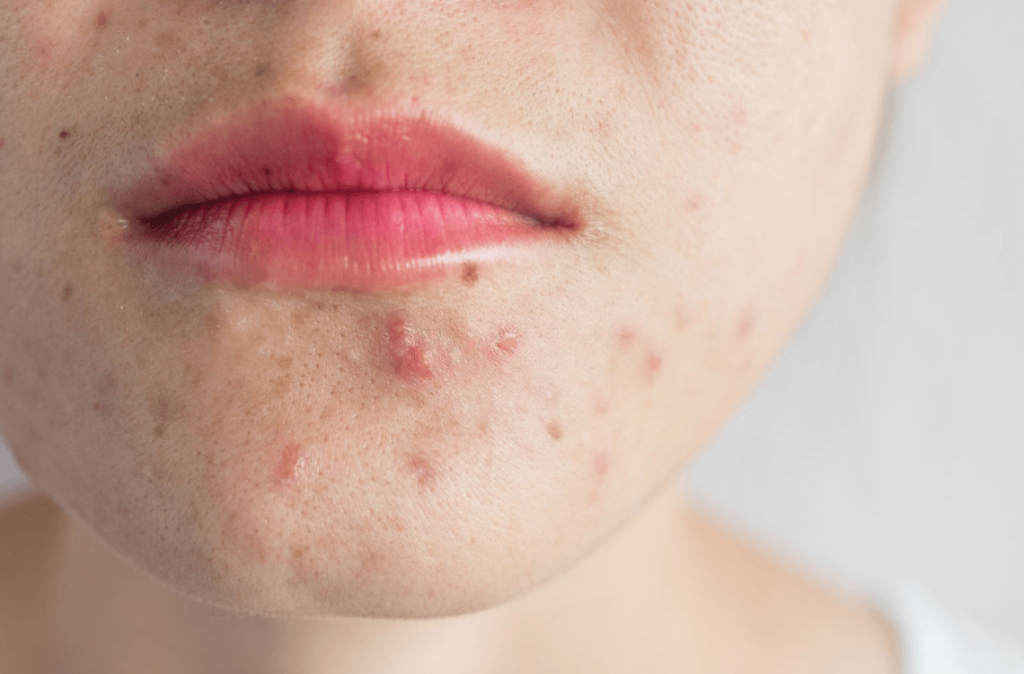Are you worried about your zits, Mummies? For expecting mothers, pregnancy acne is a skin rash, likely caused by changes in hormones.
During pregnancy, acne is totally normal. More than half of pregnant individuals should potentially expect to develop acne. However, acne can be serious in some cases!
The increase in hormone levels causes the growth of acne for pregnant mothers. The production of natural oils is highly produced during pregnancy.
Every pregnancy is different from one another and some women will develop acne and some will not. Moreover, it can also happen during the first, second and third trimester!
When you are pregnant, handling acne can be tricky. That is because a high risk of birth defects comes with many prescription and over-the-counter therapies.
In general, any drug that even has a small risk of hurting your baby should be avoided.
Acne from pregnancy is a common phenomenon. Typically, it goes away as the levels of hormones return to normal.
The best thing to do is to stop any over-the-counter chemical spot remedies or prescription acne drugs.
You can rely on drug-free home remedies instead. Most importantly, when you are pregnant or planning to become pregnant, before you begin any acne treatment, consult your doctor first.
Speak to him to know what is the best and suitable for you.
Unsafe Acne Treatments That You Should AVOID!
-
Isotretinoin
Isotretinoin is an oral drug which has revolutionised the treatment of extreme acne. But when you are pregnant, it is extremely risky. That is because severe birth defects can be caused by this drug.
-
Hormone therapy
This includes the hormone estrogen and the anti-androgens flutamide and spironolactone (birth control is off-table!)
-
Oral tetracyclines
This can disturb bone growth and discoloured teeth permanently.
-
Topical retinoids
There is a concern that topical retinoids could cause a harmful effect and an increased risk of birth defects!
Tips on Treating Pregnancy Acne (at Home!)
Pregnancy acne typically resolves after childbirth. So, good skincare is the best course of action.
According to Dermatologists and experts, here are several drug-free ways of treating acne during pregnancy:
- Limit washing to two times per day and after heavy sweating.
- When you cleanse your face, make sure to use a gentle, oil-free, alcohol-free, and non-abrasive cleanser.
- Wash your hands with soap before you start to cleanse your face.
- Use a cotton pad or washcloth to lightly wash your face (but change and use a clean cloth or pad each time).
- After washing, rinse your skin with lukewarm water. Then gently pat dry and apply moisturizer.
- Avoid over-cleansing. It can overstimulate the skin’s oil glands.
- Shampoo regularly. If you have oily skin, it is best to shampoo daily. Avoid oily hair mousse or pomade near the hairline.
- Change your pillowcases frequently.
- Keep your hands off your face because there are bacteria on the fingers.
- Use earbuds.
- Don’t hold a cellphone against your face.
- Avoid the temptation to squeeze or pop your pimples. That can result in permanent acne scars.
Final Note For Mum-To-Be!
If your acne doesn’t improve within a few weeks of following a consistent regimen, or if your acne is serious or really affects you, instead of trying new products, you can simply go to a board-certified dermatologist.
Adult acne is notoriously difficult to handle, and what works for an expectant mum might not work for you, and it may be successful for a tailored routine.
Also, watch this YouTube video by Dr Davin Lim for Dos and Don’ts for Acne During Pregnancy!
Mothers, there’s no shame with pimples! We don’t suggest you have to walk around feeling confident about your acne, but there’s no need for pimples to hide from the expectant mum team. Welp, everyone has it!
Disclaimer: The information provided in this article is for informational purposes only and should not be considered as medical advice from Motherhood. For any health-related concerns, it is advisable to consult with a qualified healthcare professional or medical practitioner.
For more insightful stories and fun recipes, stay tuned to Motherhood Story!
